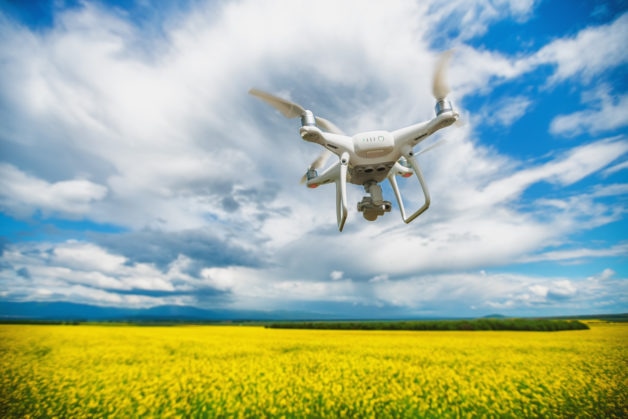Jul 29 2019
Scientists from Berkeley Lab and UC Berkeley recently achieved another breakthrough in thermophotovoltaic efficiency, which could open the door for ultralight engines with the potential to power up drones for many days.
 Drone flying over a field. (Image credit: valio84sl/iStock)
Drone flying over a field. (Image credit: valio84sl/iStock)
In the last 15 years, the efficiency of transforming heat into electricity using thermophotovoltaics—an ultralight alternative source of power that could enable drones and other unmanned aerial vehicles to function continuously for many days together—has hit a roadblock at 23%.
A research team headed by study corresponding author Eli Yablonovitch recently identified that a highly reflective mirror attached to the back of a photovoltaic cell has the ability to reflect infrared photons of low energy to reheat the thermal source, thereby offering a second chance for a high-energy photon to be synthesized and produce electricity.
This innovative discovery was published in the Proceedings of the National Academy of Sciences on July 16th, 2019, and has enabled the scientists to increase the efficiency of thermophotovoltaics to a record-breaking 29%.
Yablonovitch, who is a professor of electrical engineering and computer science at UC Berkeley and a senior faculty scientist in Berkeley Lab’s Materials Sciences Division, said that this study is founded on research published by him and his students in 2011. The 2011 study discovered that the solution to increasing solar cell efficiency is, in a counterintuitive manner, through external extraction of light from an intense internal luminescent photon gas.
Currently, the team intends to achieve a thermophotovoltaic efficiency of 50% in the future by using these innovative scientific concepts.